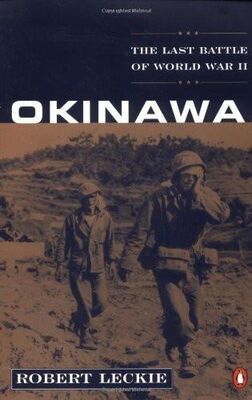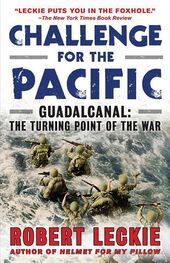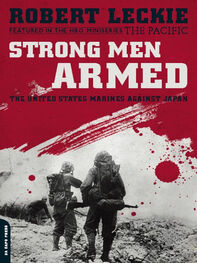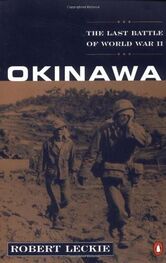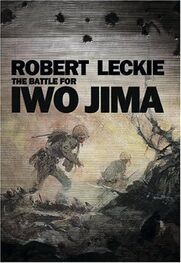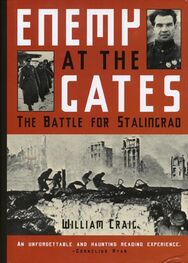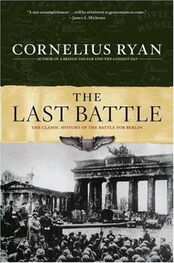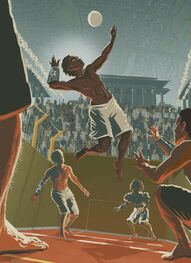Japan’s third Divine Wind had spent itself on the sturdy ships and stout hearts of the United States Naval Service.
Ushijima’s Last Stand
CHAPTER TWENTY-THREE
It was the month of June, the month of Ushijima’s last stand.
Lieutenant General Buckner had redisposed his Tenth Army for the final heave of the war. On the west, or right, flank the Marines’ sector had been narrowed. The Sixth Marine Division was going to make a shore-to-shore amphibious assault on the Oroku Peninsula in the southwest, and the First Marine Division had not the strength to cover the entire Third Corps front.
The Third Corps, in fact, was depleted. With the Second Marine Division sent back to Saipan—rather than kept afloat as a kamikaze target—Major General Geiger had not been able to rest either the First or the Sixth. He had no reserve, and the divisions themselves had tried to maintain battle efficiency by resting one regiment while the other two attacked. But it could not always be done. So the Third Corps needed troops, and soon the Eighth Regiment of the Second Marine Division would be brought into Okinawa to furnish them. But this was not until after the Eighth had finished capturing islands to the west of Okinawa to give Admiral Turner long-range radar and fighter-director stations.
The Twenty-fourth Corps was in better shape. Major General Hodge had three divisions—exclusive of the Twenty-seventh on garrison in the north—and had been able to rest one while the other two were attacking. Only infrequently, as in the final days before Shuri, were all three in the line. But from June 4 onward the Twenty-fourth Corps was grinding down on the Yaeju-Yuza Peaks where most of the Thirty-second Army’s remnants had holed up. Even General Ushijima was here, conducting the last stand from his headquarters cave just above the ocean.
June 5 was a sad day for General Hodge, for on that date his favorite regimental commander—Colonel Eddy May—fell dead with an enemy machine gunner’s bullet through his heart. Hodge had called May “the finest soldier I have ever known,” and though he was indeed “a hard ’un,” the courageous calm with which he would stand exposed to enemy fire while studying Japanese positions was legendary. Two weeks later the Ninety-sixth Division lost another brave leader: Brigadier General Claudius Easley, assistant division commander. As usual this brave little gamecock was up front scouting the enemy, and just as he pointed out an enemy machine gun, a burst from that very weapon pierced his brain.
On the same day that Easley was killed the final Medal of Honor was won on Okinawa. Technical Sergeant John Meagher of the Seventy-seventh’s 305th Infantry was mounted on a tank directing its fire when a Japanese soldier wielding a satchel charge rushed at him. Dropping to the ground, Meagher bayoneted his assailant, then ran back to his Sherman to fire a machine gun at a pair of Japanese machine guns. Emptying his gun’s belt, Meagher seized his thirty-five-pound weapon as though it were a baseball bat to club the remaining enemy gunners to death.
Casualties in the Ninety-sixth had been far from light as the division ground south on the honeycomb of caves and fortified peaks that was the Yaeju-Yuza. Its rifle battalions were so reduced in strength that General Hodge, to maintain the division’s momentum, transferred the Seventy-seventh’s 305th Infantry to the Ninety-sixth.
When the GIs of the Twenty-fourth Corps began to penetrate the enemy cave strongholds, many of them were sickened with what they found. The caves were full of men and misery. There were many sick and dying. Some caves had become reeking pest-holes. As many as forty men lay in some of these hillside warrens. At times a doctor or a corpsman came around to ask how they felt. They could do little more. They had no supplies. Men died from wounds not considered serious. Filth accumulated. The rain drummed outside, water streamed into the caves, and the wounded nearly drowned. The smell was so overpowering that men could hardly breathe.
Still Ushijima was determined to fight on. He shared the fanaticism of those Army diehards who were even then, in that month of June, attempting to wreck the peace party that the new premier, Baron Kantaro Suzuki, was forming with the secret encouragement of Emperor Hirohito. Tokyo had been savaged twice more, on May 23 and 25, and the emperor was now genuinely dismayed by the slaughter among his people.
But General Ushijima and General Cho, resuming their old relationship, were capable of no such dismay. The fight was to be to the finish, and on June 4 the Tenth Army shuddered and drove forward.
On that date the Sixth Marine Division’s spearheads shoved off from Naha to make the last Marine amphibious assault of World War II. Again the amtracks, wallowing in the sea waves, the naval gunfire thundering overhead, the shores of the objective winking and spouting smoke—and in they went to conquer three-by-two Oroku Peninsula in a whirling ten-day battle. Again beaches, coral pinnacles, caves, hills, tunnel systems, 5,000 last-ditch Japanese to be killed, an admiral to be driven to suicide, and again death and wounds for Marines—1,608 of them. Oroku was the Pacific War in microcosm—even in its Medals of Honor: Private Robert McTureous attacking machine guns firing on stretcher-bearers and losing his life to save his buddies; Corpsman Fred Lester continuing to treat wounded Marines while dying of his own wounds. But Oroku ended in a rout after Admiral Ota committed hara-kiri. On June 13 the Japanese threw down their arms and fled toward the mainland in the southeast. They could not escape. The First Marine Division had driven past the base of the peninsula and sealed it off. The Japanese began surrendering.
Beneath Oroku, the First had broken through to the south coast. Okinawa had been sliced down the middle, but more important to those weary, hungry Marines who did it was the sea outlet to which amtracks could now bring supplies. The men had been a week on reduced rations, slogging through the mud that made supply nearly impossible.
On the eastern flank the Seventh and Ninety-sixth Infantry Divisions were also nearing the southern coast. Lieutenant General Buckner had already made a surrender appeal to Ushijima. He had had a letter dropped behind the lines. It said:
The forces under your command have fought bravely and well, and your infantry tactics have merited the respect of your opponents… Like myself, you are an infantry general long schooled and practiced in infantry warfare… I believe, therefore, that you understand as clearly as I, that the destruction of all Japanese resistance on the island is merely a matter of days…
The letter was dropped on June 10. It reached Ushijima and Cho on June 17. They thought it hilarious. How could a Samurai surrender? A Samurai can only kill himself.
Ushijima and Cho had already resigned themselves to hara-kiri by that seventeenth of June, for by then all was over. On the west flank the First Marine Division was battling through Kunishi Ridge while the Sixth had again come into line on the right and was racing for Ara Point, the southernmost tip of Okinawa. In the east, the Ninety-sixth Division was finishing off resistance in the Yaeju-Yuza Peaks, and the Seventh Division’s soldiers were closing in on the Thirty-second Army’s very headquarters.
There was nothing left for Ushijima and Cho, save the satisfying news the next day that the American who had insulted them with a surrender offer was himself dead.
Simon Bolivar Buckner had come down to Mezado Ridge to see the fresh Eighth Marine Regiment enter battle. The Eighth had come to Okinawa on June 15, after seizing Admiral Turner’s radar outposts, and was attached to the First Division. As had happened in the beginning at Guadalcanal, when another regiment of the Second Division was attached to the First, so it was happening in the end at Okinawa.
Читать дальше